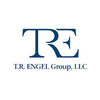Hotel owners face a critical decision when selecting a property management structure: should the property be brand-managed or be managed by an independent, third-party operator?
With the proliferation of hotel brands, this choice has become increasingly complex. While third-party management companies operate hotels on behalf of owners, brand-managed properties function under consolidated brands with associated fees. Both structures come with their advantages and challenges, making it crucial for owners to evaluate their specific needs and long-term goals.
In this article, TRE explores the key differences between brand-managed and third-party managed hotels through insights from industry experts, examining factors such as specialization, customer alignment, fee structures, and overall impact on ownership.
Ultimately, understanding these dynamics can help guide owners in making the most informed management decision for their property’s future.
Matt Engel, Managing Partner, T.R. ENGEL Group:
In general, when the T.R. ENGEL Group (“TRE”) evaluates each investment opportunity, we take into consideration five (5) key components:
Team Members – TRE believes each member of our hotel property-level management team deserves—and must be provided—every opportunity to achieve success in their position. To that end, TRE finds a distinct difference in brand managed vs third party managed property. In the third party managed arena, while one can expect annual compensation to increase more rapidly than at brand-managed property, conversely, brands (e.g. Marriott, Hilton, etc.) generally offer more fulsome, diversified future career opportunities/paths for line-level employees (e.g. training programs, diversified career paths).
Customers – When evaluating management company options, TRE places significant importance on determining if a prospective manager reflects TRE’s basic treatment of people. TRE feels that the ways in which a management company treats its personnel clearly dictates how favorably/unfavorably your hotel customer will be treated. At all chain scale levels—from management of a third-tier market economy hotel to that of a twelve-star ???? international resort, TRE actively promotes a culture of “people first” to help ensure that each hotel employee, in turn, provides competitively superior customer services to each hotel guest.
Location – In major markets (i.e. New York, Miami, Los Angeles, Dallas, Las Vegas, Chicago), particularly with convention-center hotels, brand managed hotels benefit greatly from the distribution systems within those companies. Second-tier cities with significantly less major convention center and group bookings can benefit from the more flexible structures within a third party operator. In smaller markets, without an aggregation of assets (+- 20), third party operators clearly provide a more efficient operating platform.
Basis – Larger assets within the lodging industry generally fall into one of these two buckets—brand managed or third party managed. Generally, the location determines whether a brand managed, third party managed, or any brand affiliation makes sense. The basis of an asset, whether large or small, depends on the source of capital. Whether large assets or small assets, the basis determines the operations to a large extent. Remember, how you go into an asset makes a big difference in how you go out of an asset.
Profit – Achieving required profitability is the bottom line. TRE expects nothing less than superior operating financial performance from itself and from the management company on behalf of our Investor. At TRE, we focus on continuous management company collaboration, always experiencing plusses and minuses from both brand and third-party managed teams. In the end, we do our best to find with each management team options to help produce superior customer service and financial success.
Tom Engel, Founder and Principal, T.R. ENGEL Group:
1. Points of Common Ground…Commonality:
Specialists -both brand and third party managed hotels are populated at the property and oversight levels with common specialists in ops, sales and marketing, revenue management, finance. My experience is that competency is about equal between both parties.
“Who’s the Customer?” -neither group today can effectively and accurately define a hotel’s customer/segmentation mix. This is because the method of recording room nights is now measured primarily through “method of reservation” (e.g. Expedia, Trip Advisor, etc.)…versus being measured by “specific customer making the reservation.” Clearly this ambiguity on ‘who is the customer?’ is amongst the most frustrating aspect ownership experiences today in dealing with either a managed or third party managed team of experts.
Social Media -both parties typically have a social media specialist engaged in supporting a given hotel’s business development. Mastering this specialty—understanding how social media really works, measuring social media’s impact on generating business, evaluating social media messaging—both alternative management groups—brand and 3rd party managed—are working hard to educate ownership teams on this dynamic, new IT resource.
2. Points of Difference:
Responsiveness/Engagement – while hotel-level management positions are pretty similar at brand and third party managed hotels, generally brand-managed “oversight” is typically more specialized, a far more complex hierarchy than third party managed hotel hierarchies. So, it typically takes much longer to get key hotel-level questions answered when dealing with brand managed area/district/regional teams. Bigger, more complex third party management companies fall into this same trap
Accountability/Ownership at Local Level -over the years I have found General Managers typically take real pride and ownership of their GM position—leading their team, working hard to produce competitively superior customer service, etc. In recent years, however, I have found GM’s at brand-managed hotels being much “more cautious, more per-occupied” with what their brand-managed area/district folks’ POV on an issue. This oftentimes reduces/eliminates careful risk-taking in building the business. Not good.
Frank Otero, Managing Director, T.R. ENGEL Group:
1. Brand:
Quick access to the key decision makers
Ability to leverage the marketing engines more completely and faster
Can secure the attention of senior management faster
2. Third Party
Learns from multiple brands their success and failures
Diverse knowledge base from multiple brands
Ability to manage multiple brands within a market, which offers opportunities to move people, through promotions and reassignments, more quickly and cheaper than brand managed. Typically, third party has multiple hotels/brands in a market whereas brand managed typically only have one or two hotels in a market that they manage.
Jim Flynn, Senior Managing Director, T.R. ENGEL Group:
1. Brand Managed:
Pros
One-stop shopping
One management contract with brand affiliation included
Depth of hotel management talent
Experience managing within the brand
Cons
Navigating a large corporate structure
Less flexibility with brand requirements“Take it or leave it” attitudeDifficult for hotel management to resist brand directives
2. Third Party Managed:
Pros
Management contract separate from franchise agreementTermination flexibility
Fewer levels of corporate management
More responsive to owner requests
Ability to navigate brand standards
Cons
Need to negotiate two legal contracts
Expense of both management fees and franchise fees
Craig Wienckowski, Founder and Principal, Kahana Capital Partners:
Third-party operators offer both advantages and disadvantages from an owner’s perspective:
Compared to direct management, third-party operators typically better represent owners’ interests. Their management agreements tend to be more owner-friendly, featuring shorter terms, meaningful performance tests, and easier termination clauses. These agreements often include special provisions, such as requirements for retaining key executive personnel.
The flexibility to terminate operators can be valuable during property sales, acquisitions, or repositioning. This ability to change operators provides new ownership groups with quasi-vacant possession, even when the brand remains locked in under a franchise agreement. Owners may prefer operators with regional strengths or specific operational advantages in areas like cost control, revenue strategy, group sales, or F&B expertise. During repositioning, owners can select operators whose strengths align with perceived opportunities.
However, these advantages must offset the increased cost of maintaining both management and franchise agreements. Third-party operators must also be familiar with brand standards and operational policies.
Larger brands typically offer access to a deeper talent pool and task force personnel when needed.
Anonymous – Real Estate Tax Expert:
The difference in TPMC and Brand managed property can be both minimal or impactful when it comes to property tax appeal work. The differences can create the need to focus on a Pro-forma Valuation or an Actual Income valuation workup for the appeal process. Brand managed properties tend to lean more toward Proforma Based valuation appeals. Their focus on hotel improvements and overall brand view is evident versus TPM where operational fluidity is the general focus.
Assessors around the country tend to see Brand Managed properties as being run professionally. Thus, when a property performs below market, it is hard to argue that bad management is the issue. TPM allows for a great argument when the property is performing below the market comparable properties.
Brand managed properties tend to be more apt to deal with improving the property on a timelier basis versus TPM. This can create challenges when working through appeals and the need for extracting the Replacement for Reserves capital.
The differences are generally minor and do not create significant issues. However, any discrepancies in an operating statement can create a perception of deception. Overcoming this perspective slow the appeals process significantly and impact the outcome of any settlement discussion n.
Harry Wheeler, AIA, Principal, JCJ Architecture:
From an Architectural and Design perspective, Brand-managed hotels tend to be a bit more prescriptive, meaning, working within the brand design guidelines, the 3rd party groups will push the envelope a bit more and get outside the boxes in alternative ways to deliver the same brand experience.
With regards to design approval processes, both types of managed hotels go through the same step-by-step design process, although the brand managed may have some expediency to it as the design team and management team are within the same group.
When it comes to implementation, the brand managed assets will pull from their internal Procurement teams to deliver the project while the 3rd party groups have more options when it comes to the FFE delivery and sourcing. Depending on the location and the asset, there are advantages to both, but the optionality is usually a benefit to the Owner.
Management Companies




